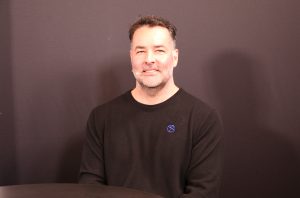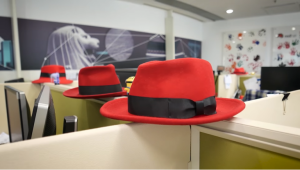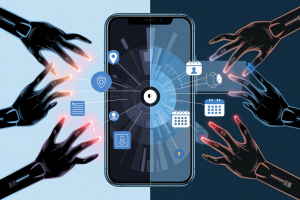The human side to data governance | #MITIQ
![]() There are as many opinions on the role of the chief data officer (CDO) as there definitions of the emerging position, but few are as well-informed as that of professor Yang Lee from Northwestern University. She helped author one of the single most comprehensive studies on the subject to date, the findings of which were presented at MIT’s recently concluded CDOIQ Symposium, where she appeared on SiliconANGLE’s live broadcast to deep dive into the key conclusions with theCUBE hosts Dave Vellante and Paul Gillin.
There are as many opinions on the role of the chief data officer (CDO) as there definitions of the emerging position, but few are as well-informed as that of professor Yang Lee from Northwestern University. She helped author one of the single most comprehensive studies on the subject to date, the findings of which were presented at MIT’s recently concluded CDOIQ Symposium, where she appeared on SiliconANGLE’s live broadcast to deep dive into the key conclusions with theCUBE hosts Dave Vellante and Paul Gillin.
Lee chooses to focus her research in the healthcare sector, a segment that has not only seen a rapid increase in the number of CDOs over the last few years but also doubles as a source for tangible examples of effective information governance making a difference in the field. From her discussions with practitioners, she identified several core pain points that hospitals and insurance providers are now finally making progress on addressing, chief of which is data inconsistency among different parts of the organization.
That is becoming an increasingly noticeable issue outside the healthcare industry too, as information takes on a more important role in decision-making.
“Any process that you see you’ll silos, so the left hand doesn’t know what the right hand is doing,” Lee explained. “Once we open up that structural problem, we examine how the businesses processes and how people work and how data flows, there is something we can figure out and contribute.”
The CDO attitude
That’s the kind of determined and methodological approach that chief data officers must embrace in order to successfully tackle the formidable task of bringing the data explosion under control. The challenges are numerous, and so are the responsibilities that come with the job. In her paper, Lee and her peers identified no fewer than seven domains that fall under the chief data officer umbrella, from supporting everyday business operations through driving corporate strategy to fostering ties with third parties in other parts of the value chain. The specific duties of individual CDOs vary greatly from one organization to another, but there is one unifying quality that all of them share.
“CDOs collaborate with other corporate officers, so their role varies depending on the organizational role and which executives they are collaborating with,” Lee highlighted. The ability to work as part of team is also important for external initiatives involving data leaders from other companies in the industry, projects that are still few and far between today but which she noted are growing in number as the need for standards and interoperability grows more urgent.
“That is very important because companies today exchange data, so just making sure that their own internal data is all prepared doesn’t mean they’ll make the most out of data because data is flowing among different companies and industries,” Lee explained.
Yet however central, collaboration represents just one of the characteristics that make a successful CDO. The ability to carefully review actions is just as critical, she said, since the role necessities diving head first into uncharted waters with little in the way of best practices and benchmarks the data governance leader can rely on for guidance. That also requires keeping an open mind, not just about the road ahead but also existing corporate policies that may have to be adapted to the new reality of Big Data.
But above all, Lee pointed out, the CDO must possess a deep understanding of the people and processes that stand to benefit from the information. That’s why the majority of data leaders come from business rather than technical backgrounds, she detailed, with the exception of the minority who report to the CIO as opposed to the COO or CEO. When it comes to governance, technological know-how takes the backseat to strategic savviness.
photo credit: rbbaird via photopin cc
A message from John Furrier, co-founder of SiliconANGLE:
Your vote of support is important to us and it helps us keep the content FREE.
One click below supports our mission to provide free, deep, and relevant content.
Join our community on YouTube
Join the community that includes more than 15,000 #CubeAlumni experts, including Amazon.com CEO Andy Jassy, Dell Technologies founder and CEO Michael Dell, Intel CEO Pat Gelsinger, and many more luminaries and experts.
THANK YOU









